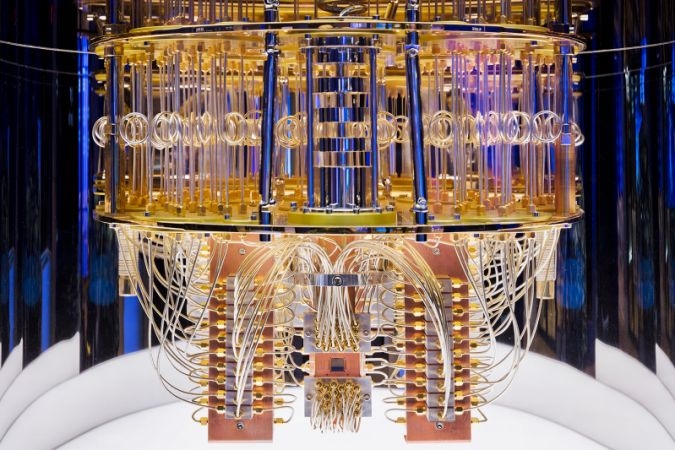IBM quantum computers now finish some tasks in hours, not months
The systems have a little help from conventional computers.


As much as quantum computers have improved, they’re far from taking the reins from conventional computers in some situations. IBM might have made them more practical, however. The tech pioneer has found a way to combine a new program execution environment, Qiskit, with a balance of “classical” and quantum computing to deliver a 100 times speedup for tasks that depend on iterative circuit execution. Computations that take months now will take mere hours, IBM said.
Qiskit by itself allows more circuits to run at a “much faster” rate, and can store quantum programs so that other users can run them. However, it also uploads programs to conventional hardware sitting next to the quantum machines. Before you ask, this isn’t really cheating— the move is meant to cut the latency between a user’s computer and the quantum chip.
IBM expects to release Qiskit sometime in 2021. Its roadmap also has quantum systems handling a wider range of circuits, and thus a wider range of computing challenges, by 2022. New control systems and libraries in 2023 will help IBM reach its goal of running systems with 1,000 or more qubits, taking the company closer to a “quantum advantage” where the technology can handle at least some tasks more efficiently or cost-effectively than traditional hardware.
The company was quick to acknowledge that there’s a long road ahead. It likened current quantum technology to the earliest computers — that is, they required a lot of manual programming and took ages to complete workloads that now seem trivial. Ideally, Qiskit and improved hardware will lead to a day when anyone can put quantum computing to use, even if it’s through a distant mainframe.
(21)